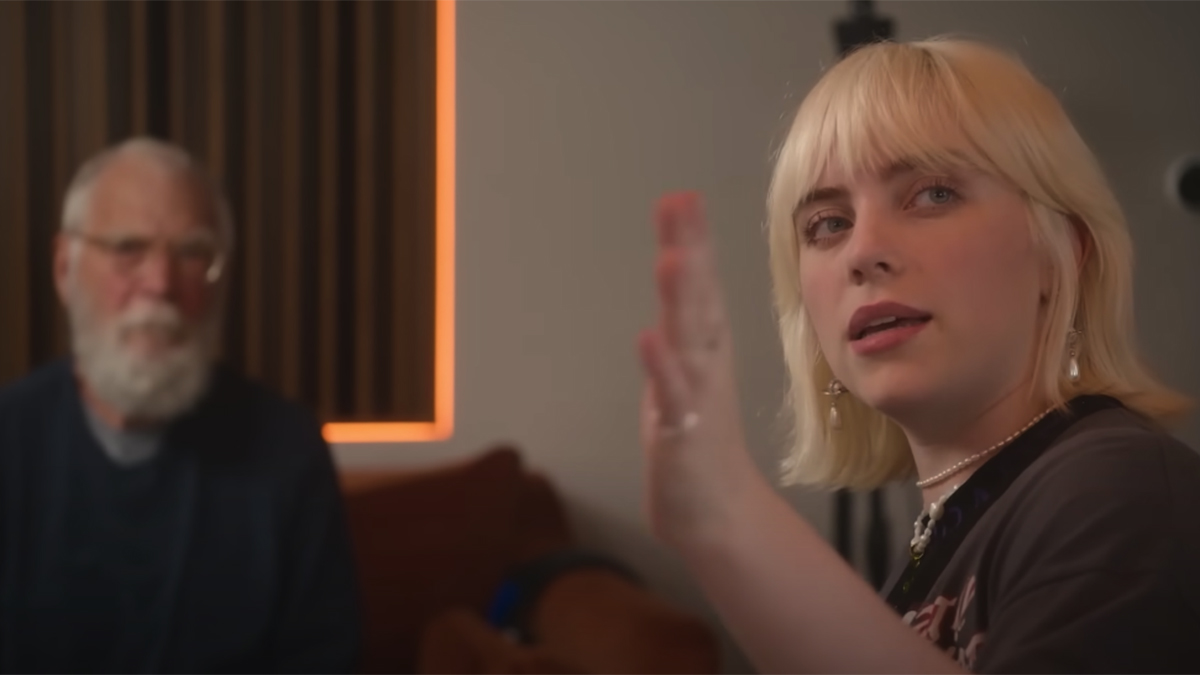“Let me teach you how to do this - it’s not that hard”: Finneas showed Billie Eilish how to comp her own vocals during the making of Hit Me Hard and Soft so that he could get out of the studio and let her record alone
“This is the most I’ve ever written and contributed,” says Eilish. “And I did some production stuff, even”
Singing in front of another person can be tough, particularly if you’re recording your own material and giving away a lot of yourself in the lyrics. So, when Billie Eilish was working on her new album, Hit Me Hard and Soft, her brother and collaborator Finneas decided that it would be good idea if he taught his sister how to capture and comp her own vocals so that he could get out of the studio and leave her to it.
The revelation came during a lengthy new interview with Apple Music’s Zane Lowe, in which Eilish and Finneas break down the making of their new record and their songwriting process.
“I'm just a puppet when it comes to comping her vocal, because she's so meticulous,” says Finneas. “And I can comp a vocal, no prob, I'm doing it forever. But she got better and better at knowing like, ‘I like this take and I like this word from this, taking like this word’. And so I was just like, well, let me teach you how to do this. It’s not that hard. And so I taught her how to record herself and how to comp herself.”
Finneas goes on to say that, sometimes, Eilish would need his help and she’d call him back, before he confirms that “one of the reasons I did it is because I've always recorded alone. And there's stuff that I am just not brave enough to do in front of somebody else. And it's like, I know, I'm her brother, but it's like…”
Eilish then reveals that there’s one specific take - a moment that occurs towards the end of Birds Of A Feather, the album’s most pure ‘pop’ song - that she could never have really gone for had Finneas been in the room.
“That's like the highest I've ever belted in my life,” she says. “And I remember being in here and being alone, I was in here alone in the dark, dark period of time. And I was just like, I'm gonna get this right. And I was recording that like [sings the relevant part of the song]. And then I was like, you know what, I'm gonna try something today. And I'm like [sings] I could just hold it, or I could go [sings again]. And I kept going, and then I was like, ‘I got this one. I'm gonna just hit the higher one’. And this is a girl that, like, I could not belt until I was literally 18. I couldn't physically do it. And I’m so proud of that. I remember coming home and being like, wow.”
There was a more general change in the approach that Eilish and Finneas took to recording vocals in comparison to the way it was done on her previous album, Happier Than Ever, too. Finneas says that, for that record, Eilish recorded most of her vocals sitting on a couch in his studio, but this time, they sat together at his desk in front of Logic Pro “like a complete co-pilot thing”.
Get the MusicRadar Newsletter
Want all the hottest music and gear news, reviews, deals, features and more, direct to your inbox? Sign up here.
“This is the most I’ve ever written and contributed,” says Eilish. “And I did some production stuff, even.”
In fact, it seems that the duo were so wedded to this approach that, when Eilish recorded the vocals for Chihiro, another of of Hit Me Hard and Soft’s standout tracks, she just just at the desk and sang as the rest of the track came out of the monitors, meaning that all of that bled through.
“I have the isolated vocals from the song and it’s basically the song,” says Eilish. “We didn’t use headphones… but it was extremely useful.
It’s a really, really, really useful writing tool for me especially - it's a lot easier for me to perform.”
Speaking of performance, Eilish and Finneas were guests on The Late Show with Stephen Colbert earlier this week, where they gave the first performance of Lunch. Eilish has also announced a new digital version of Hit Me Hard and Soft that contains not only the full album but all the isolated vocals, though this appears to be restricted to just the US and Australia.



I’m the Deputy Editor of MusicRadar, having worked on the site since its launch in 2007. I previously spent eight years working on our sister magazine, Computer Music. I’ve been playing the piano, gigging in bands and failing to finish tracks at home for more than 30 years, 24 of which I’ve also spent writing about music and the ever-changing technology used to make it.










